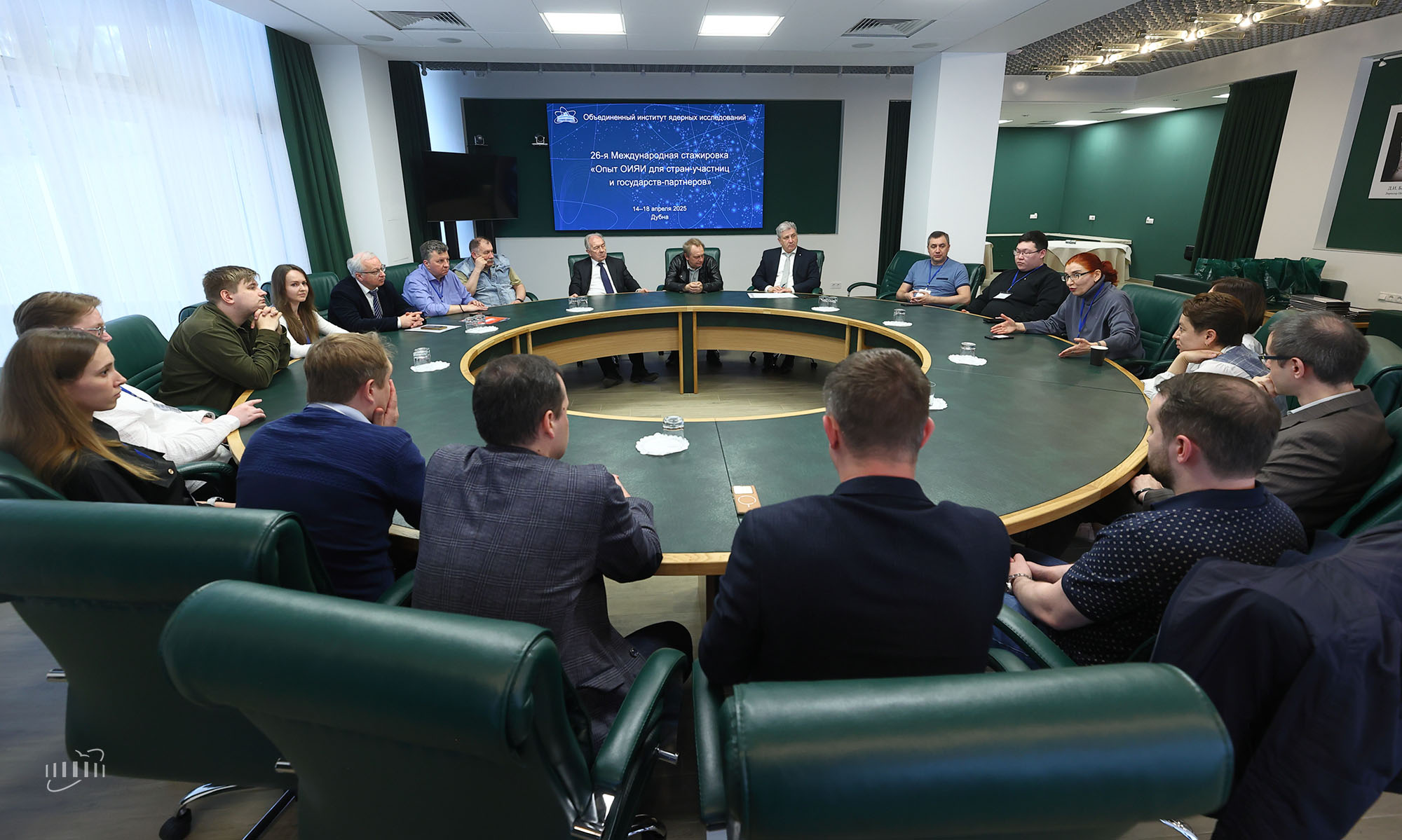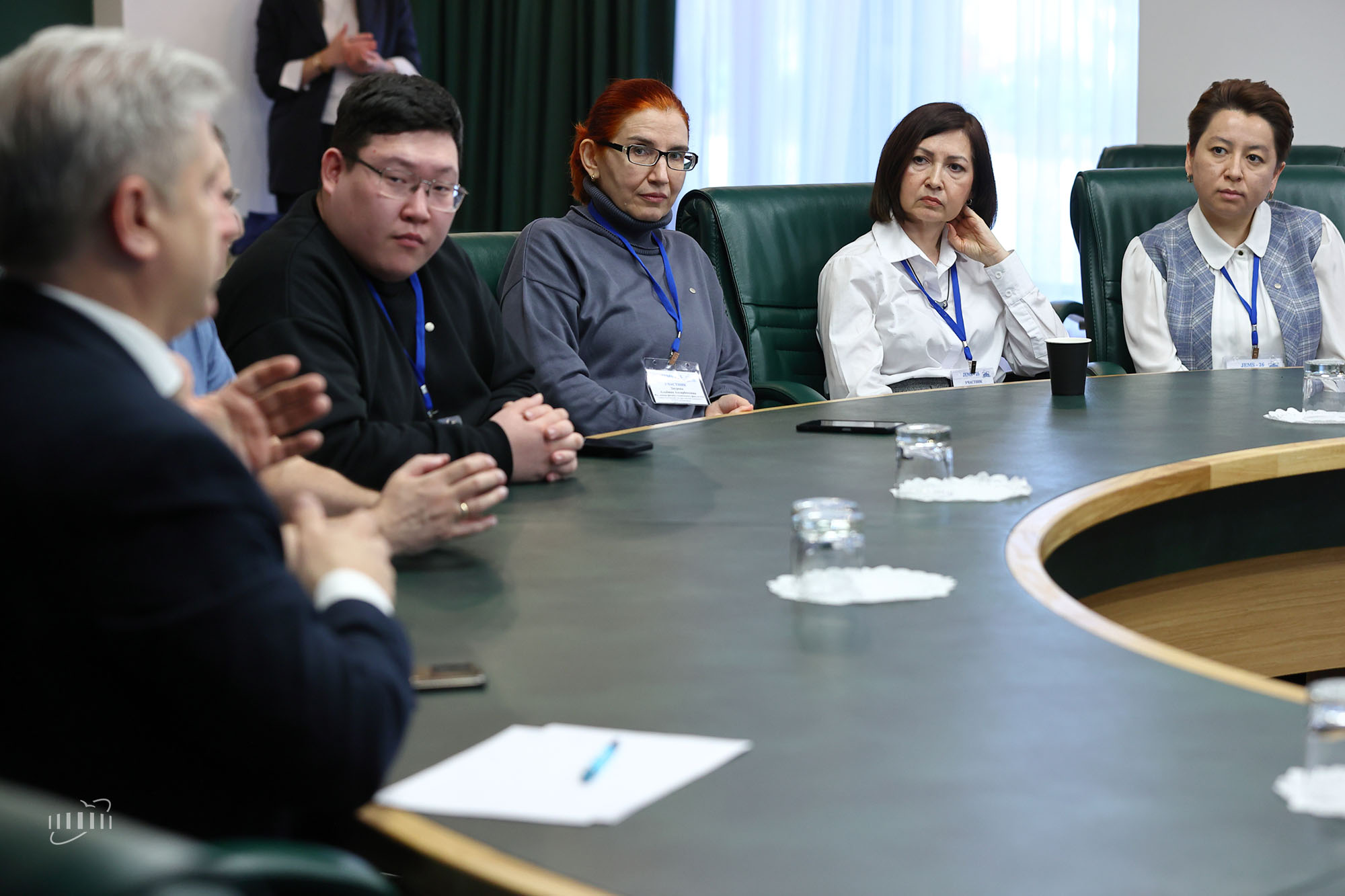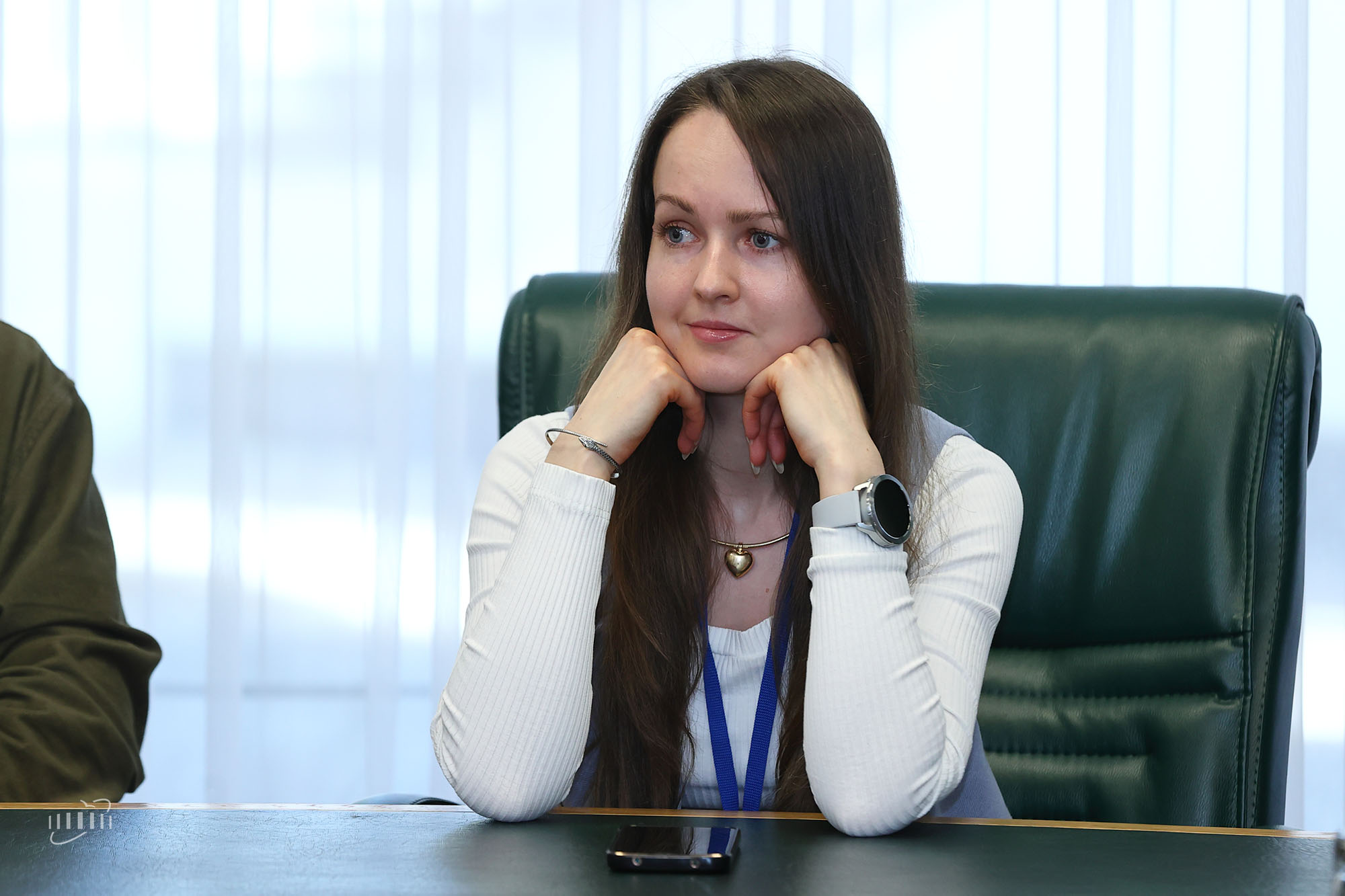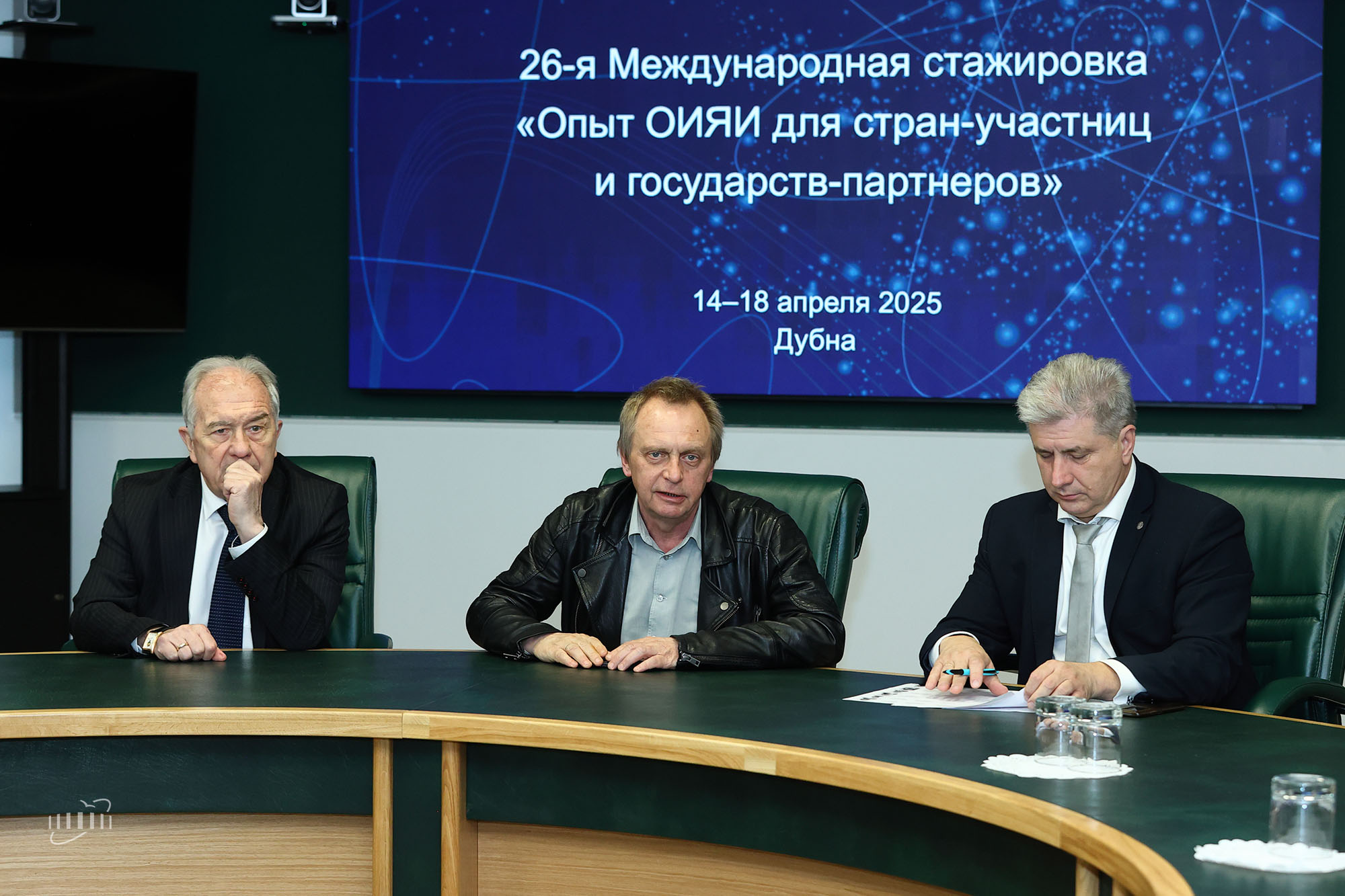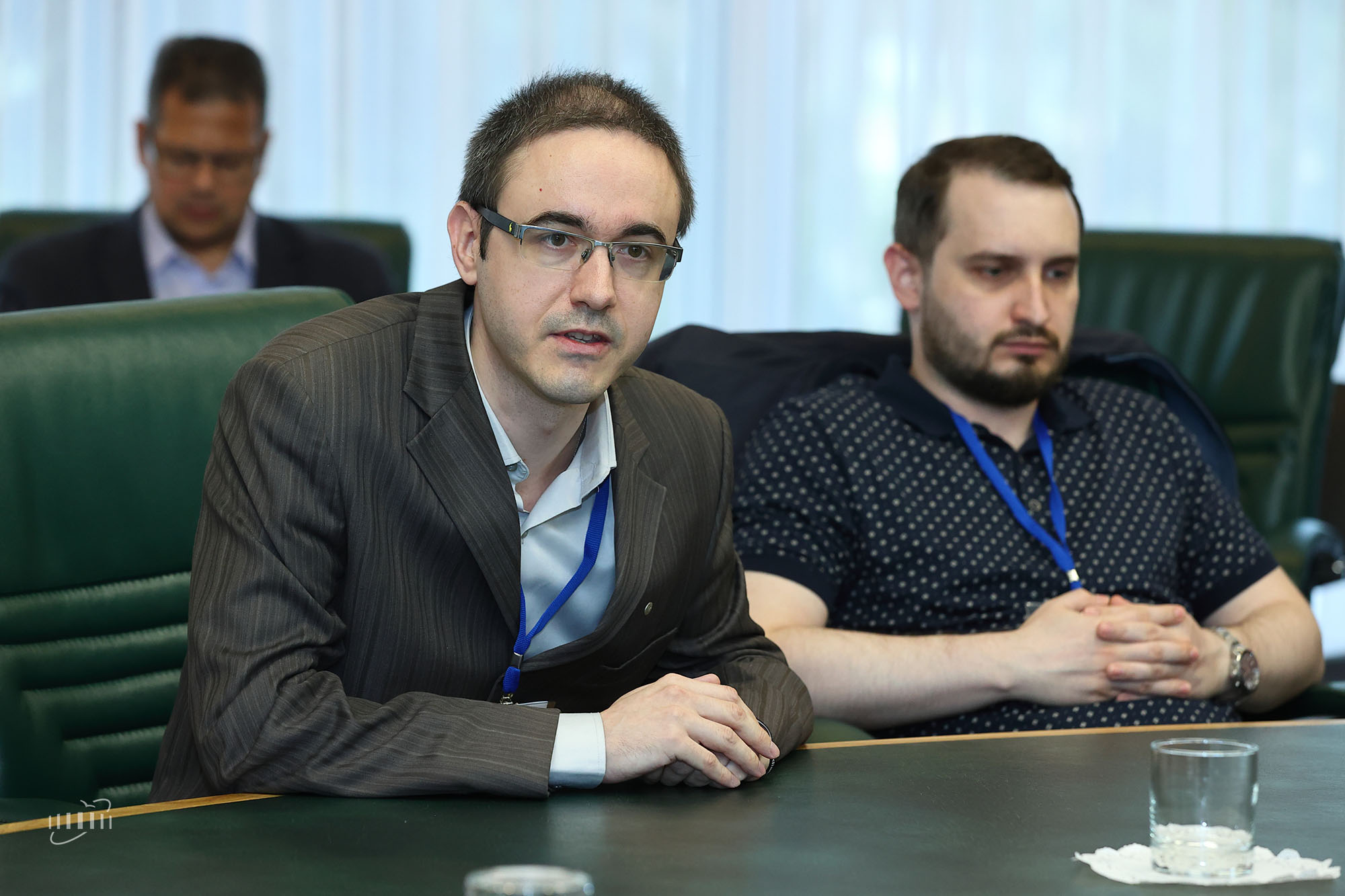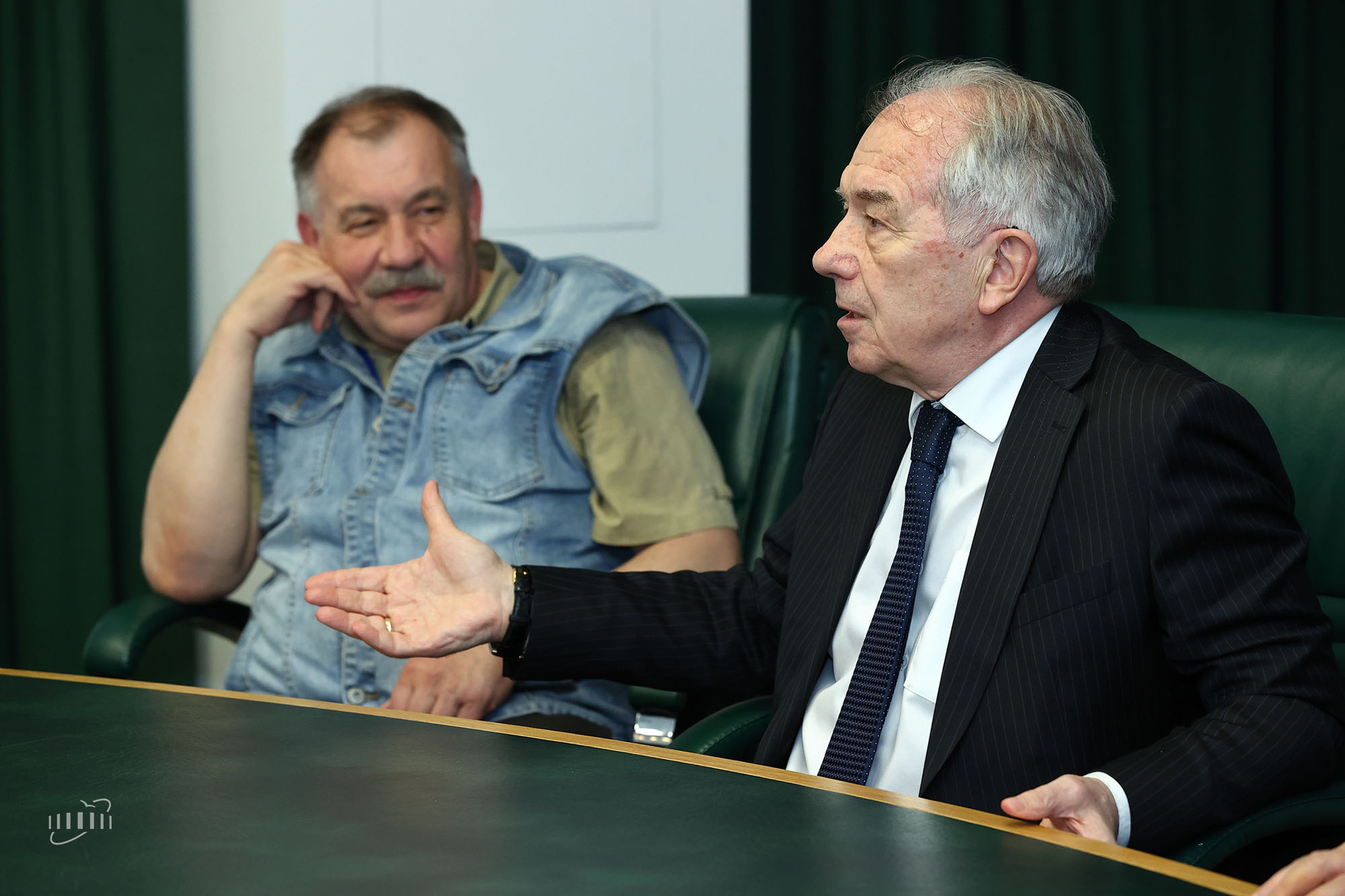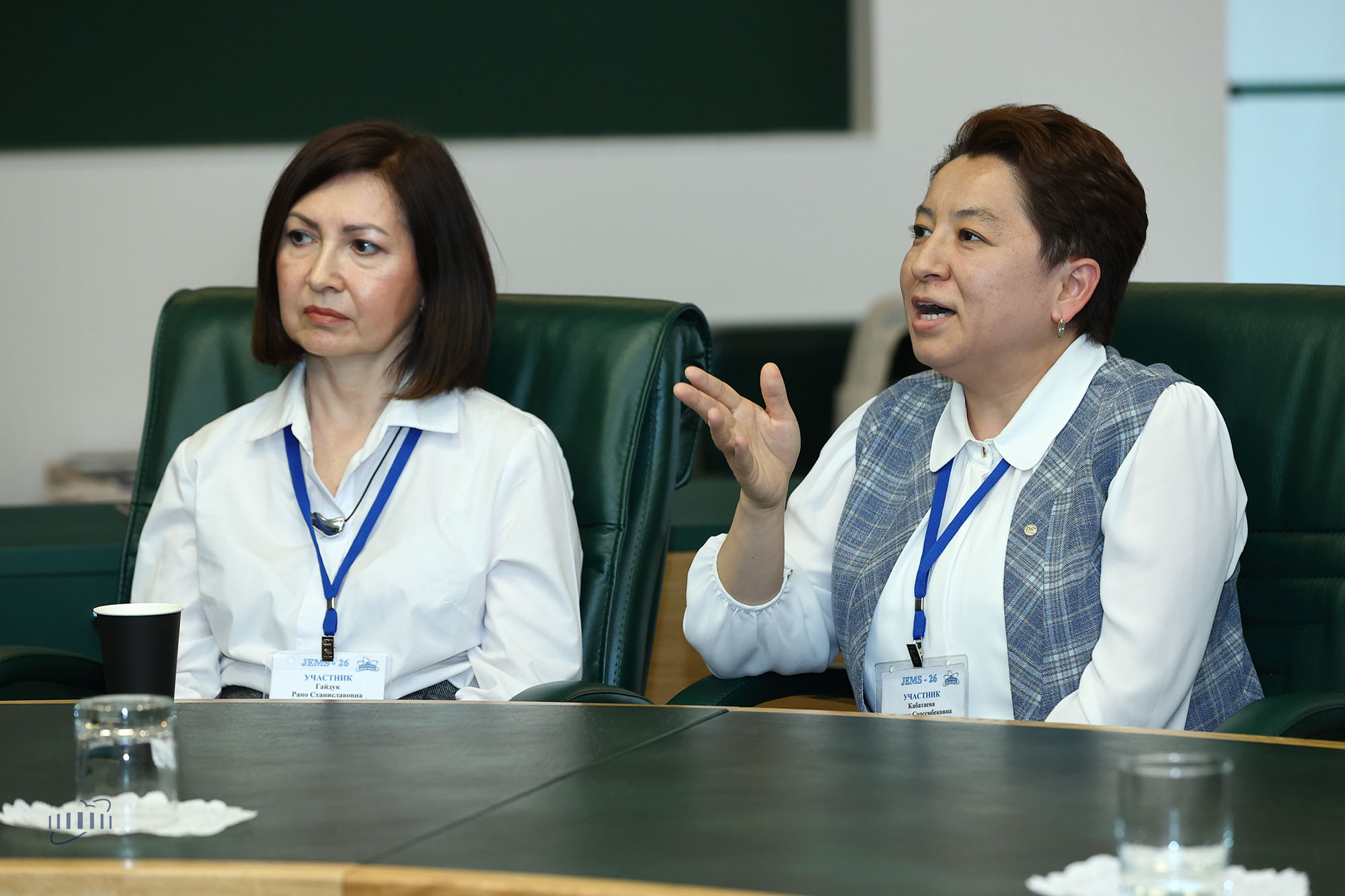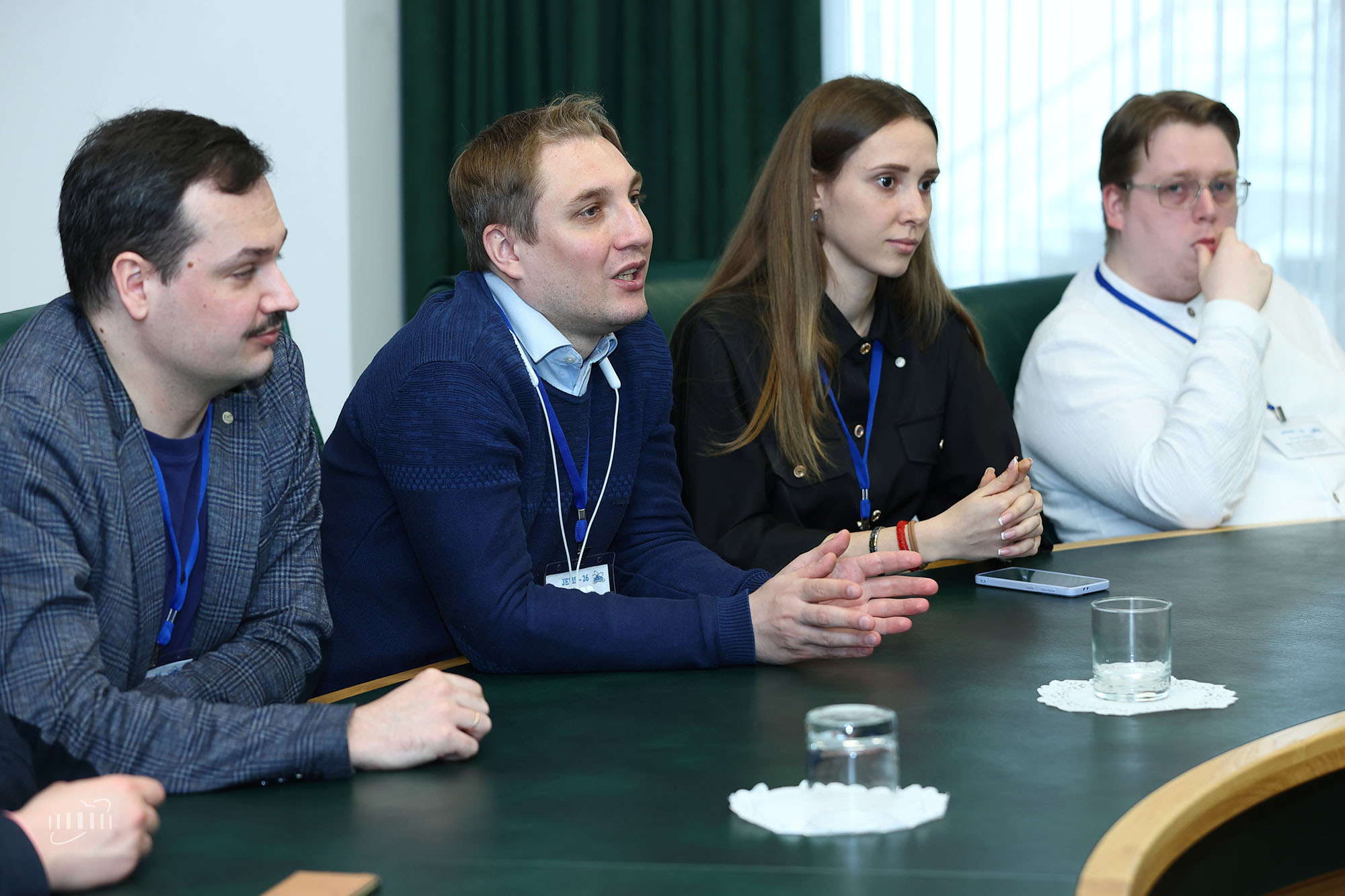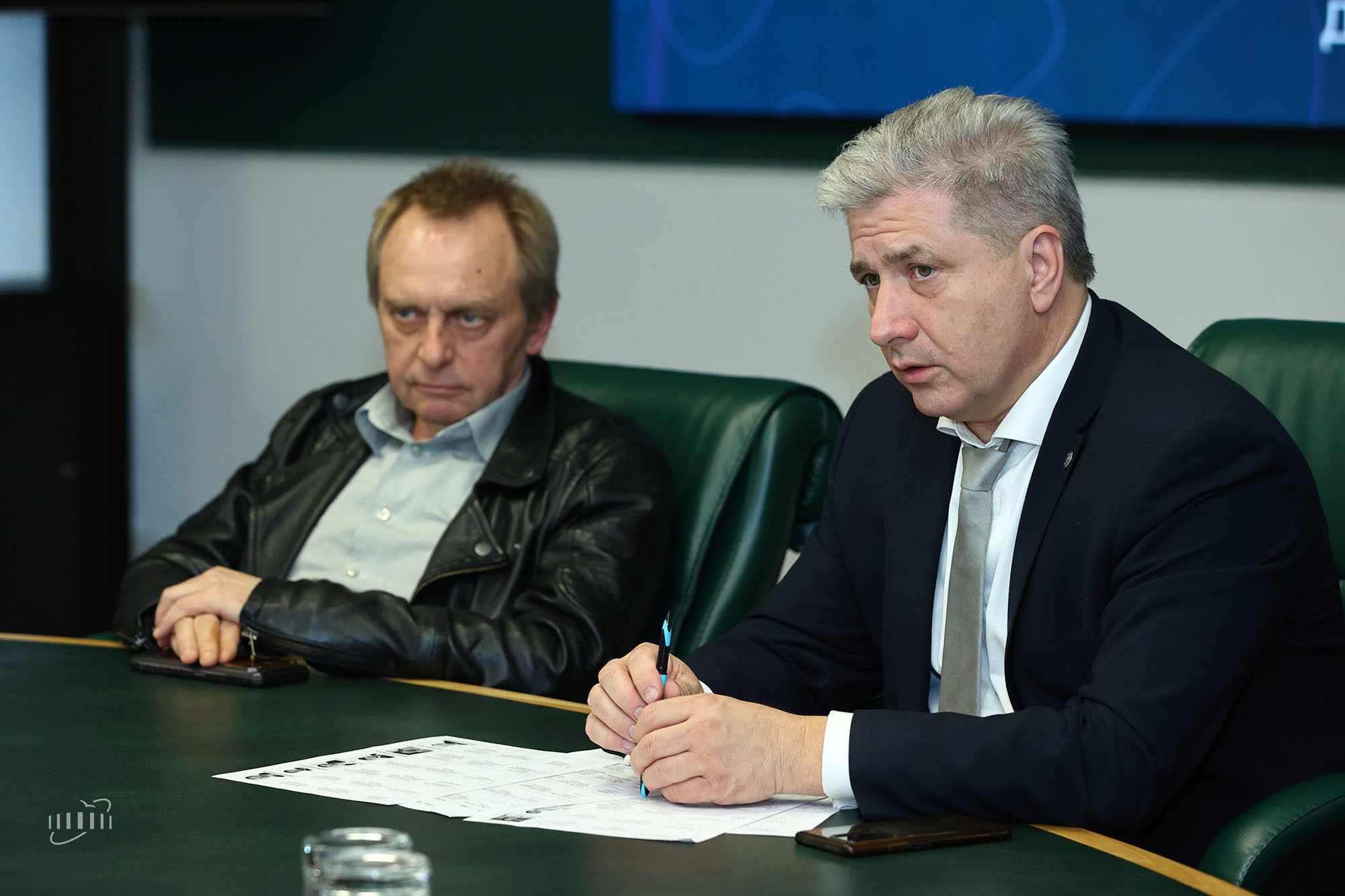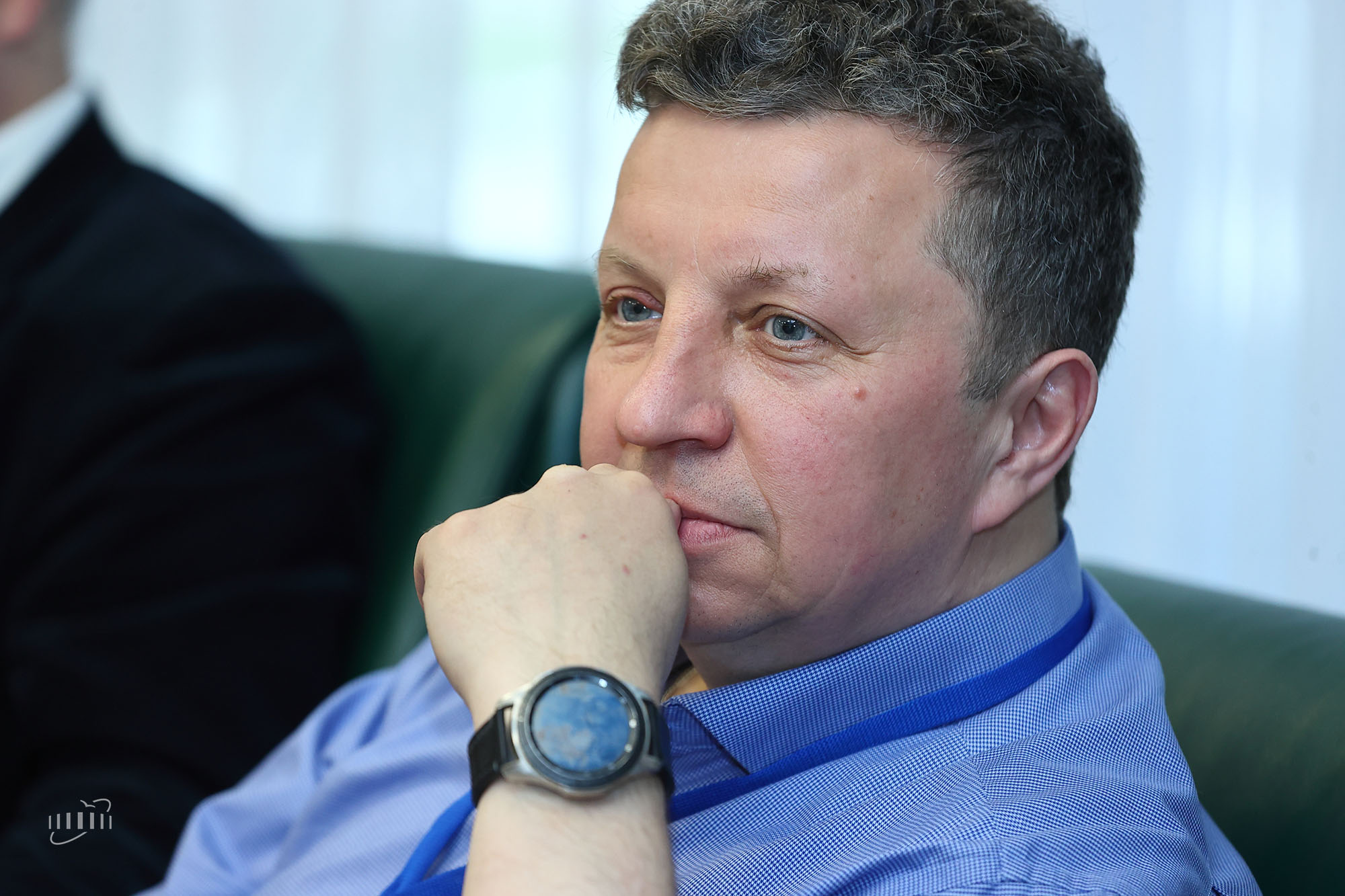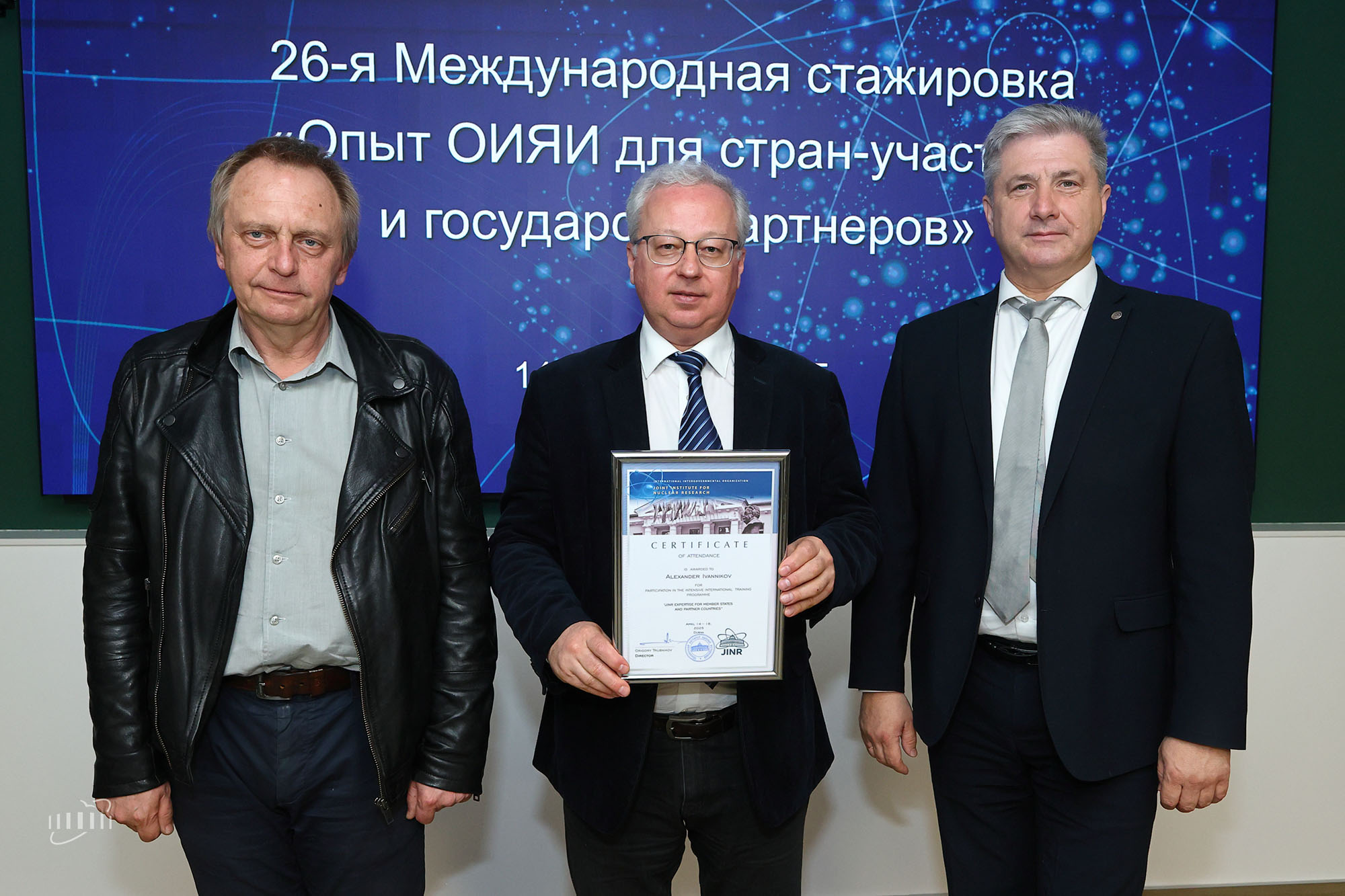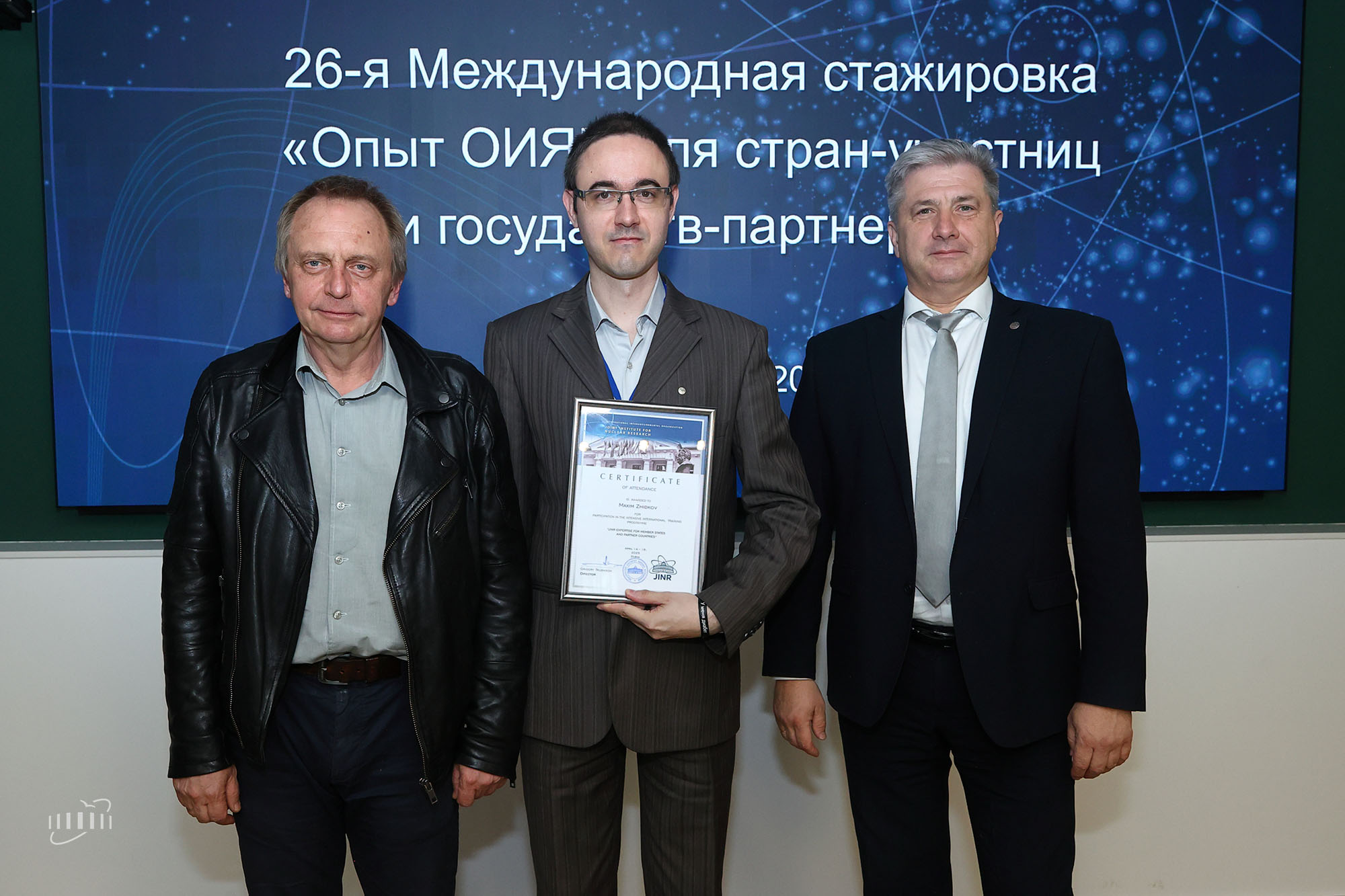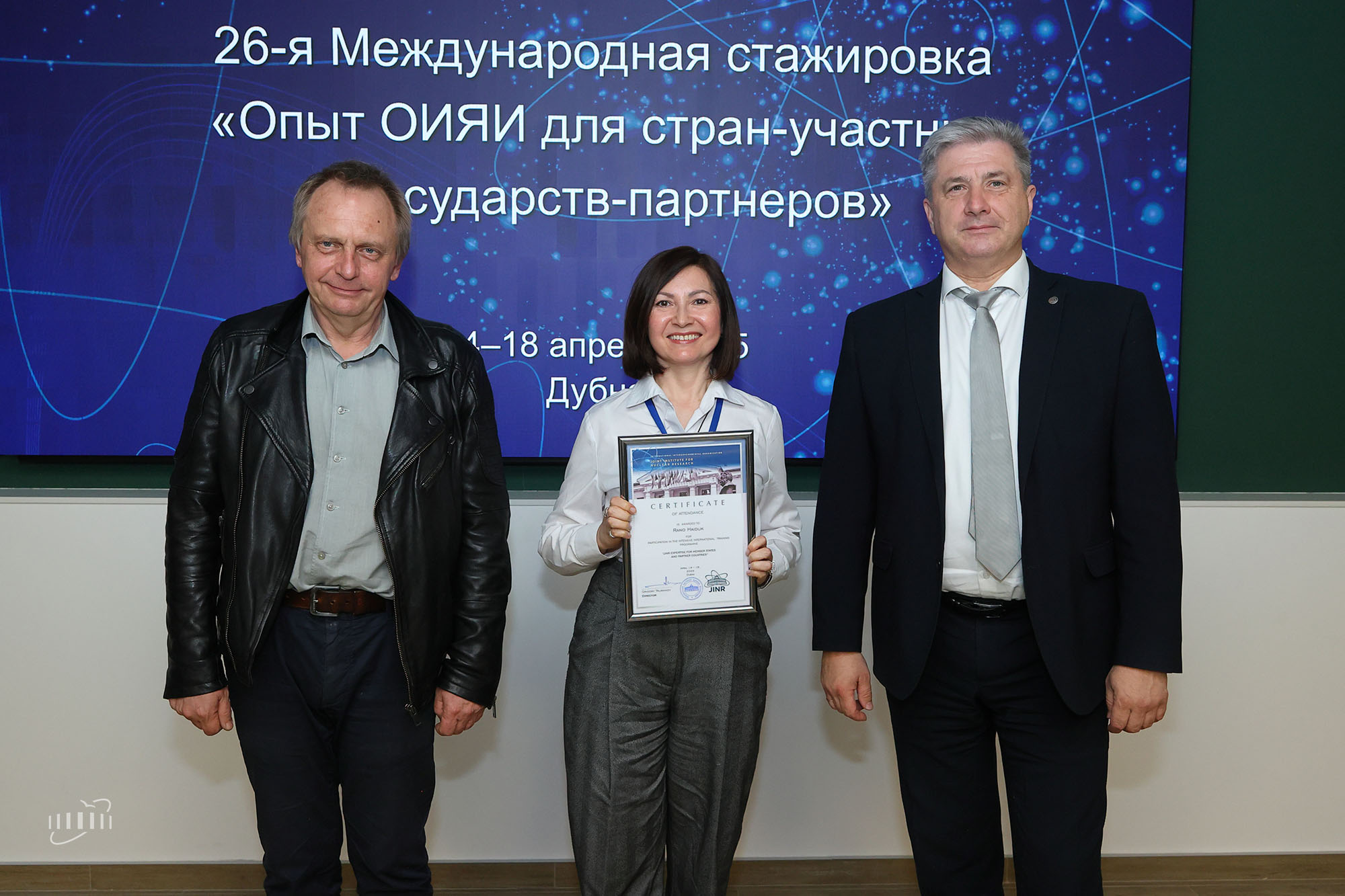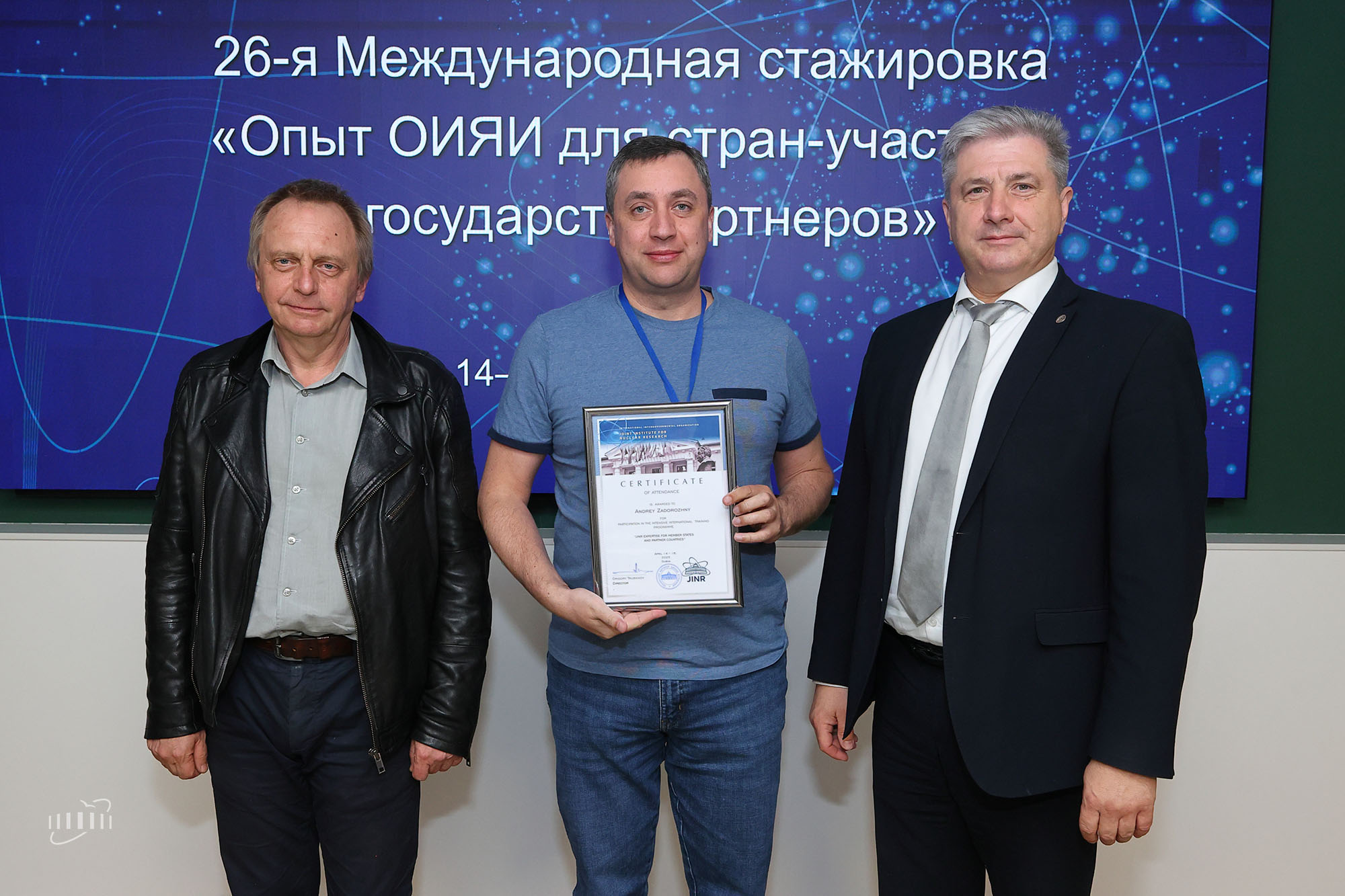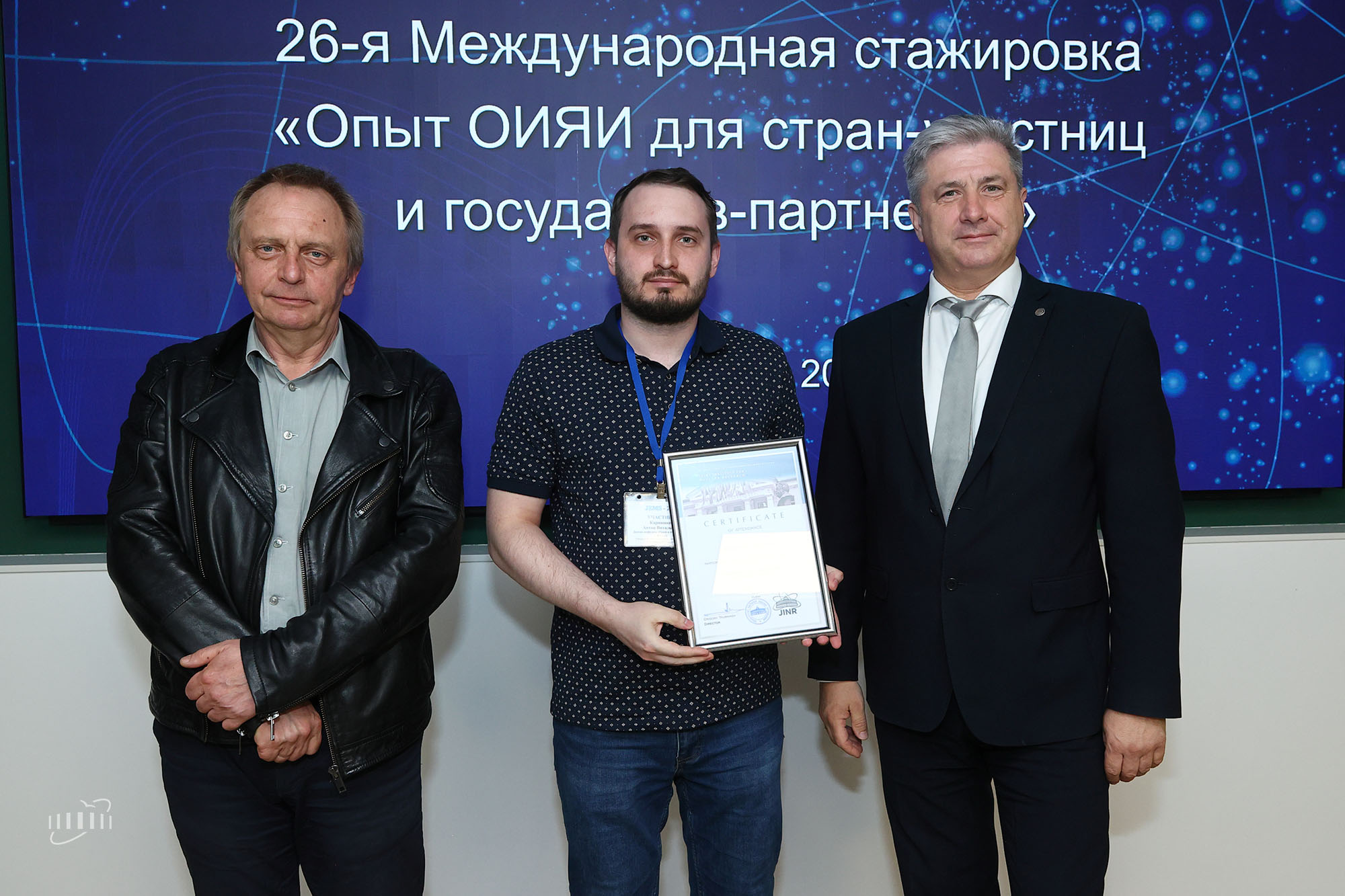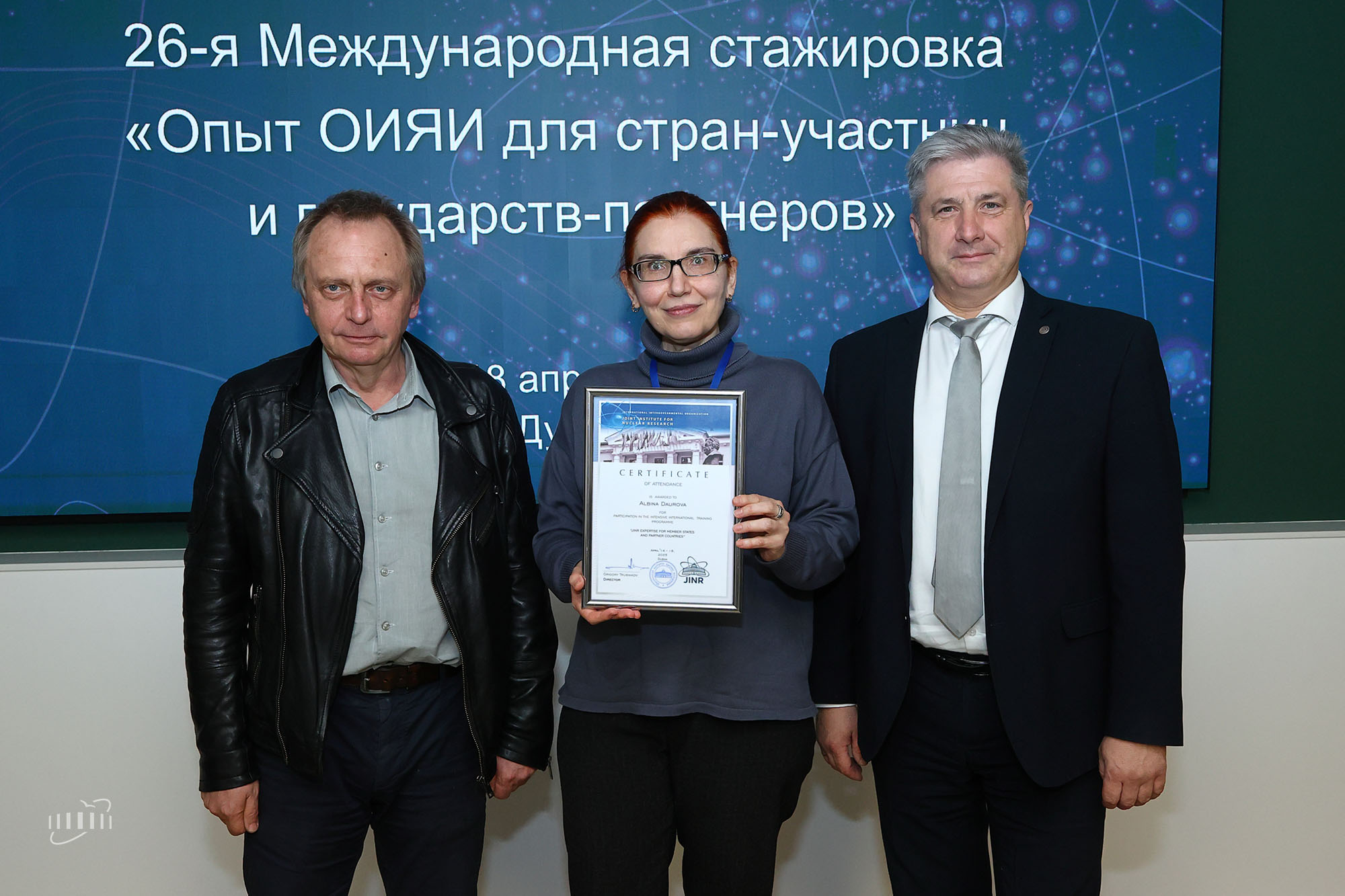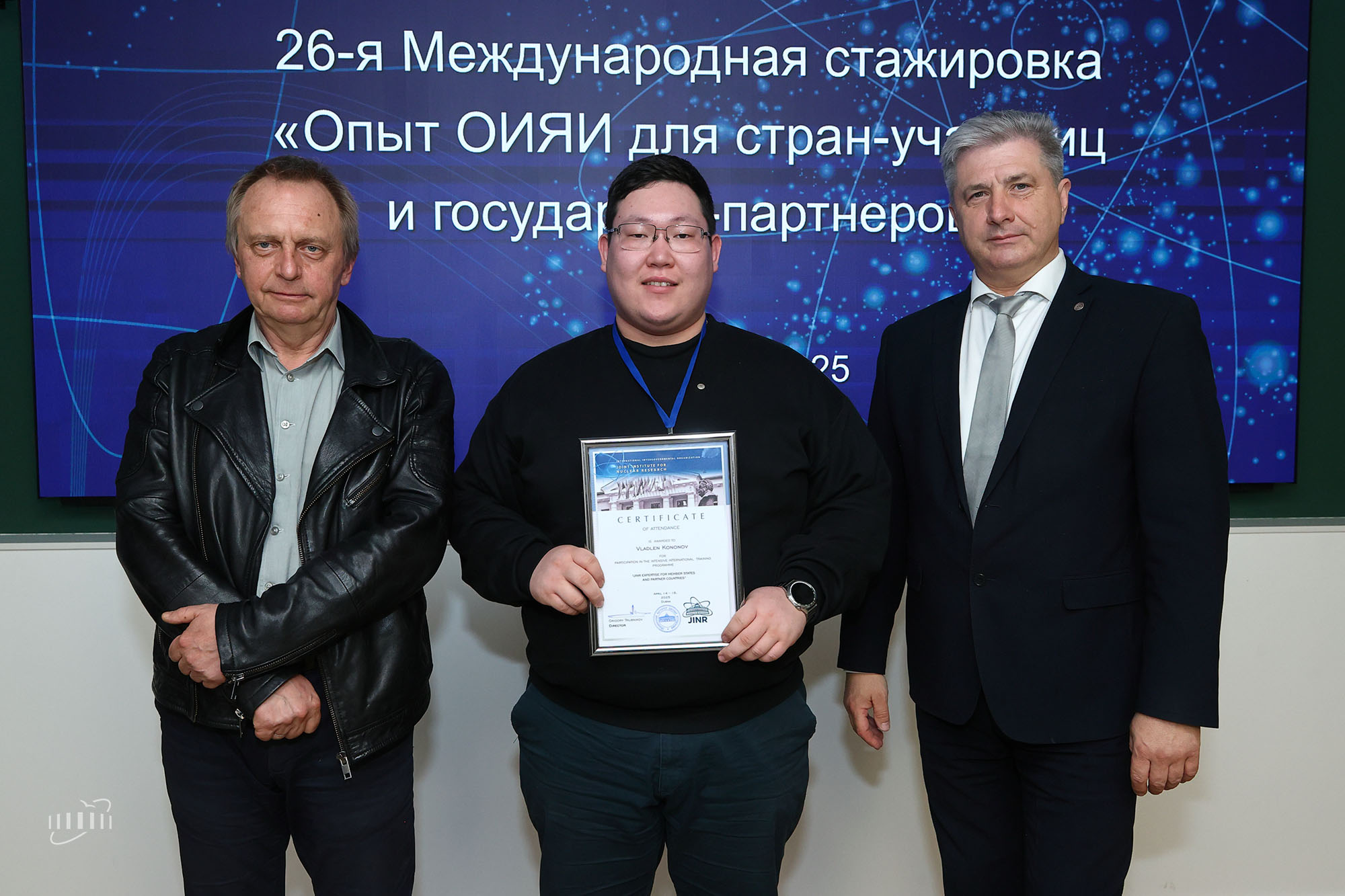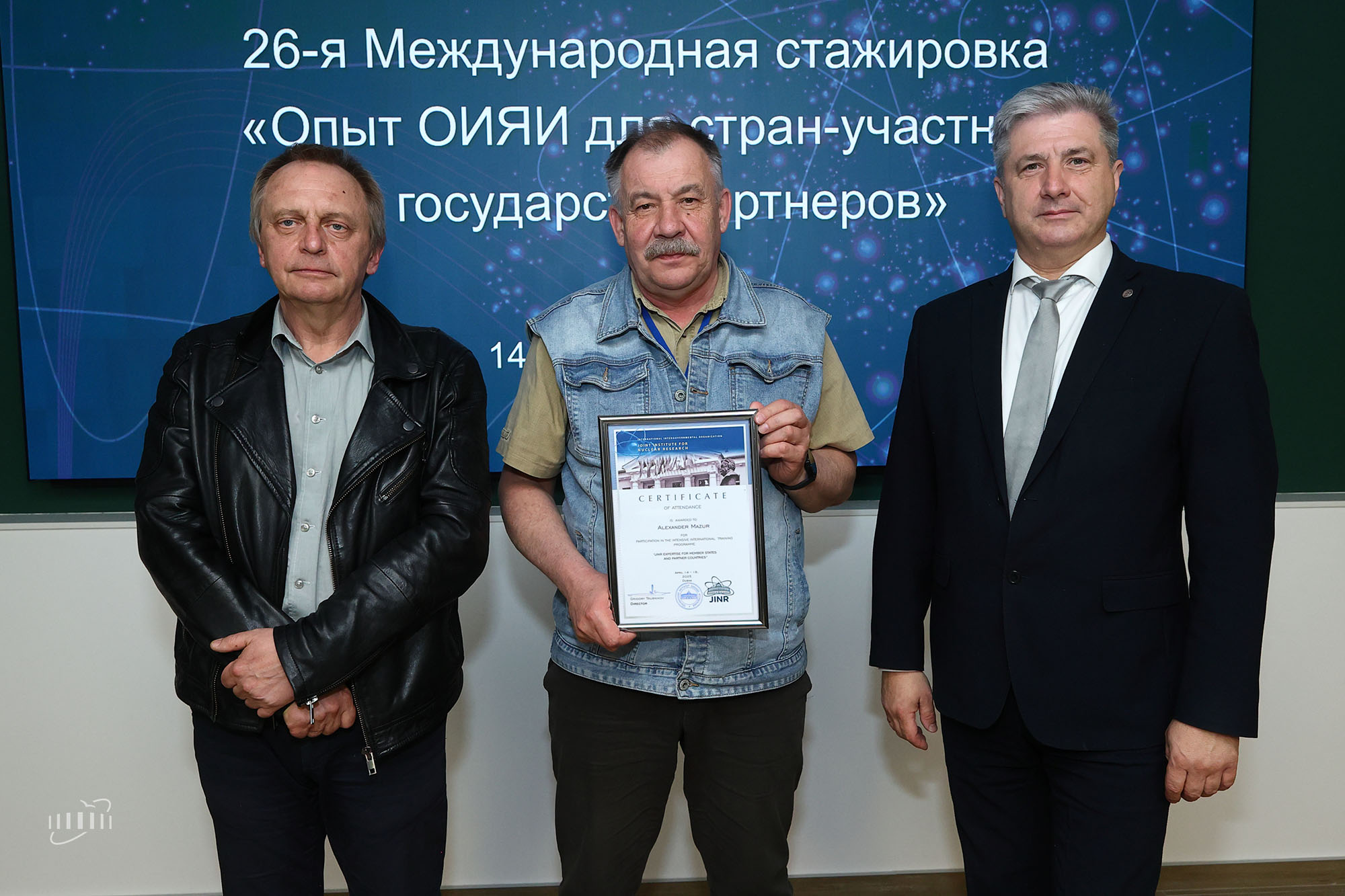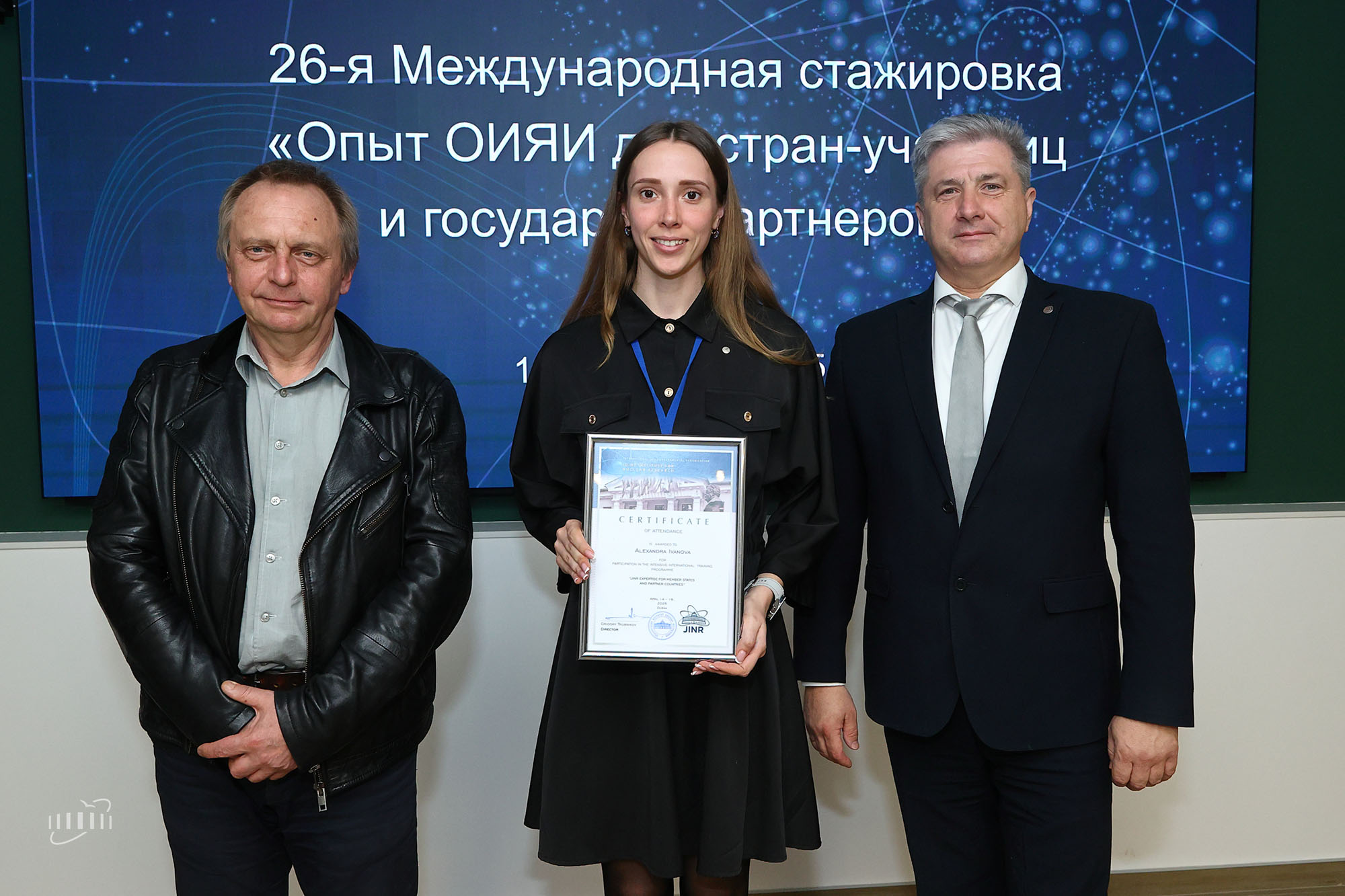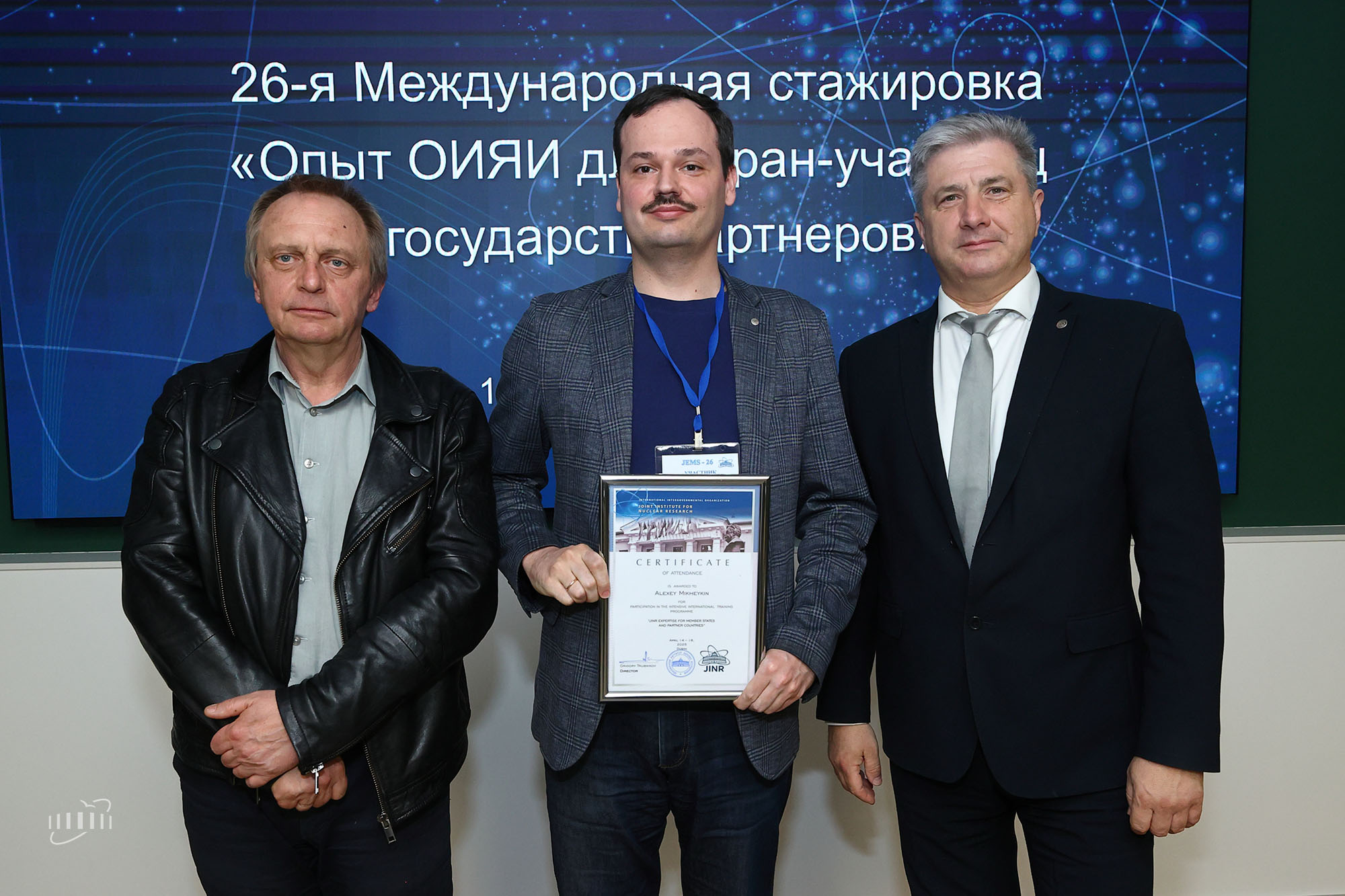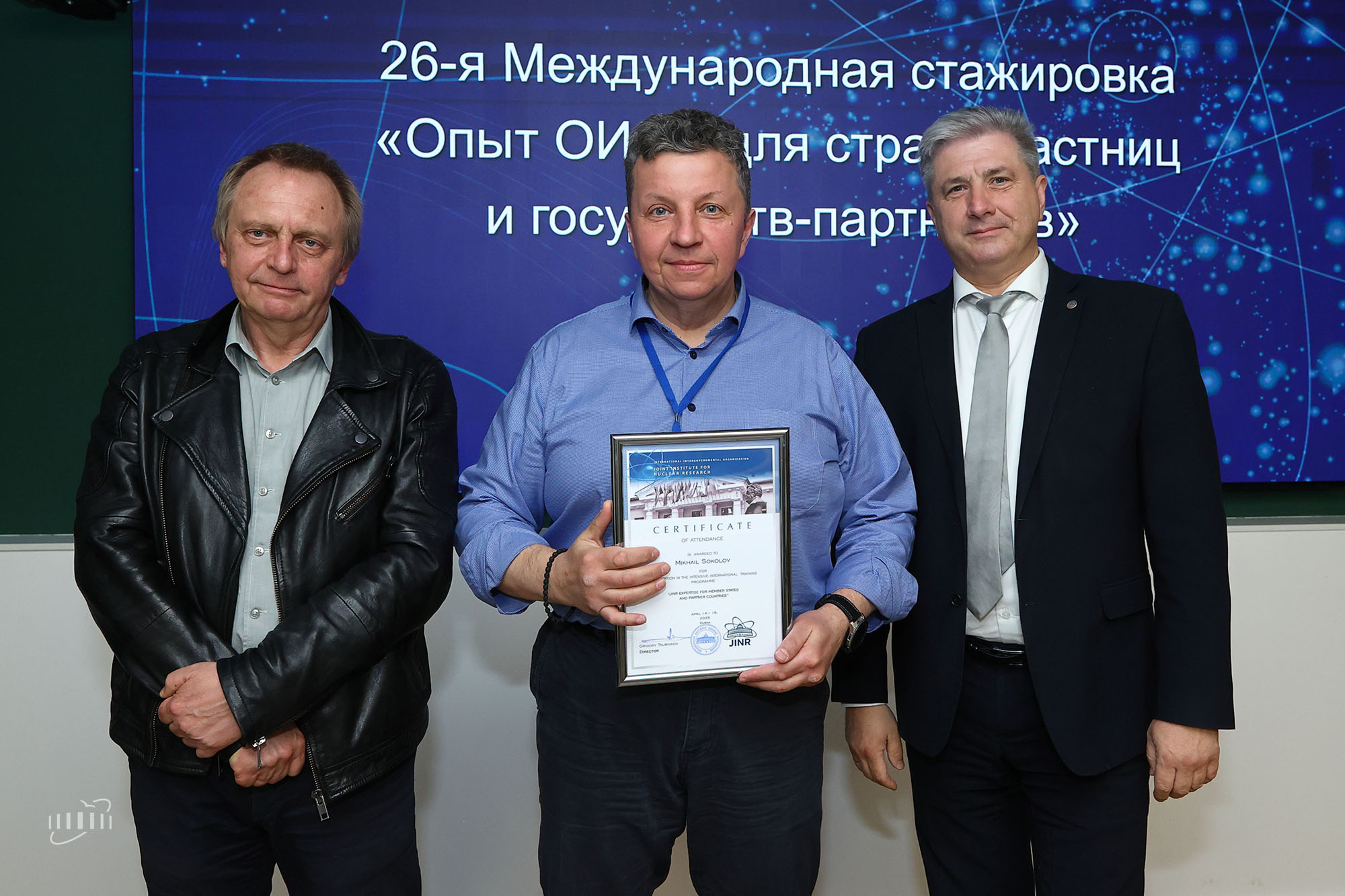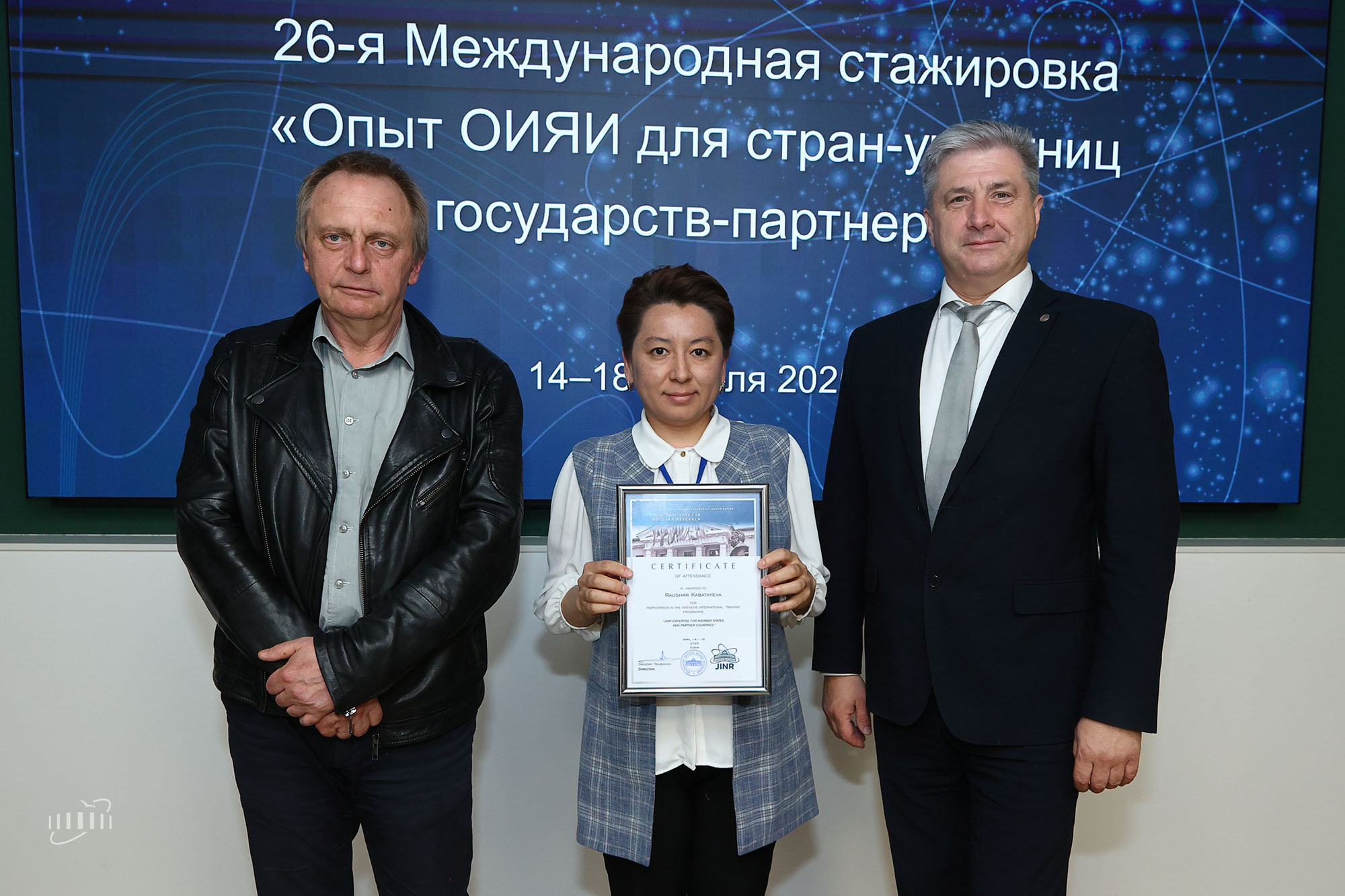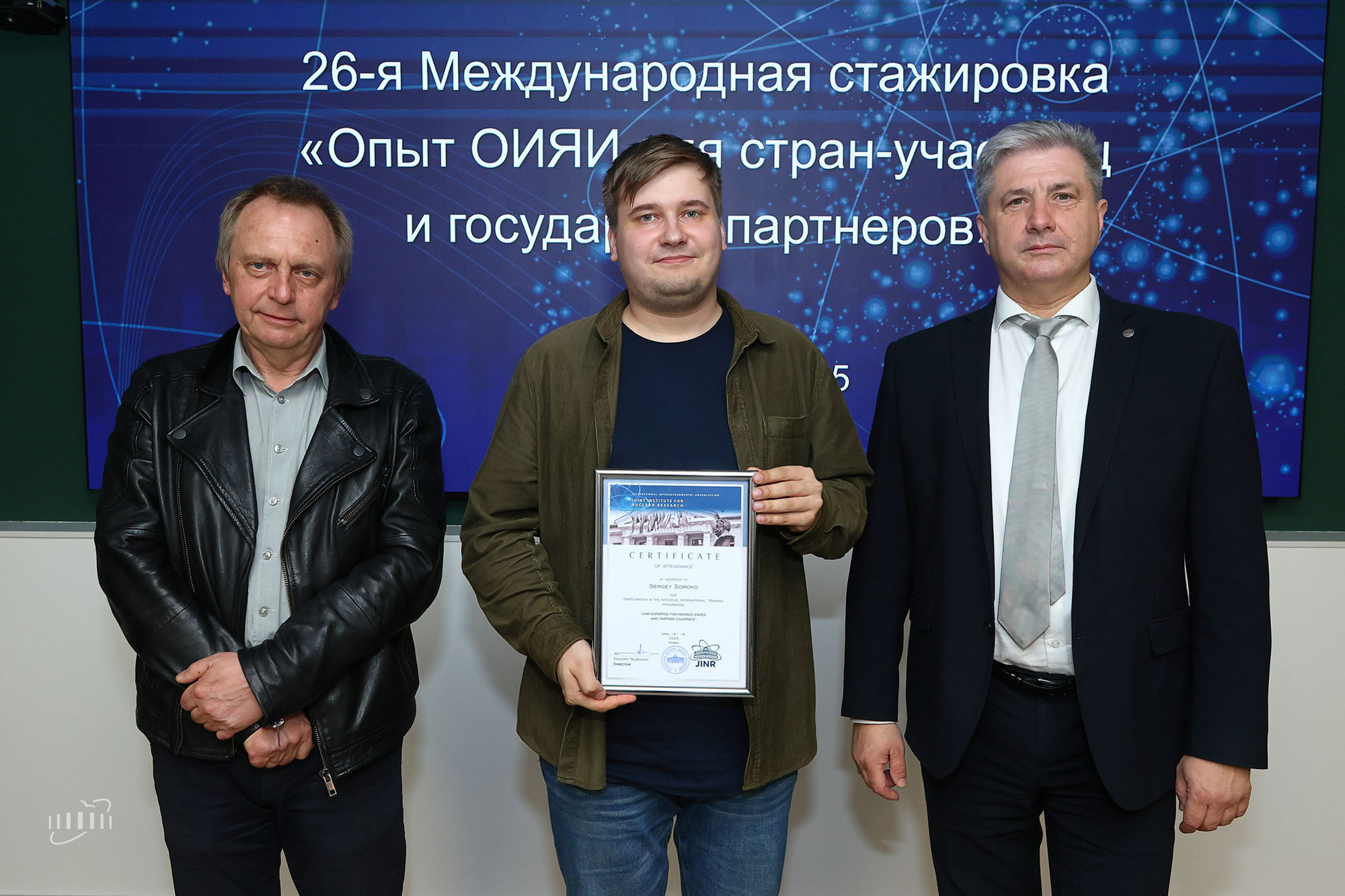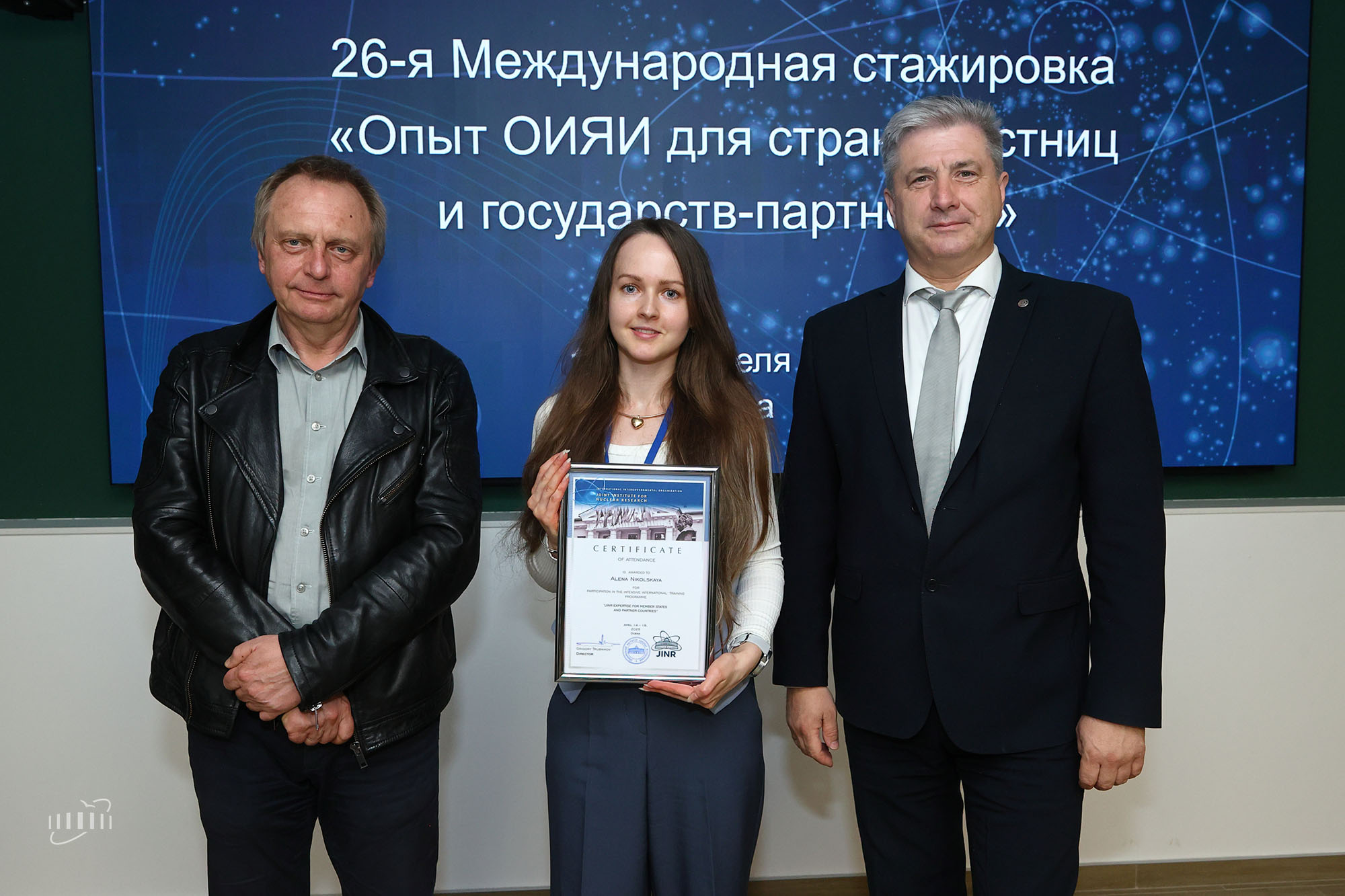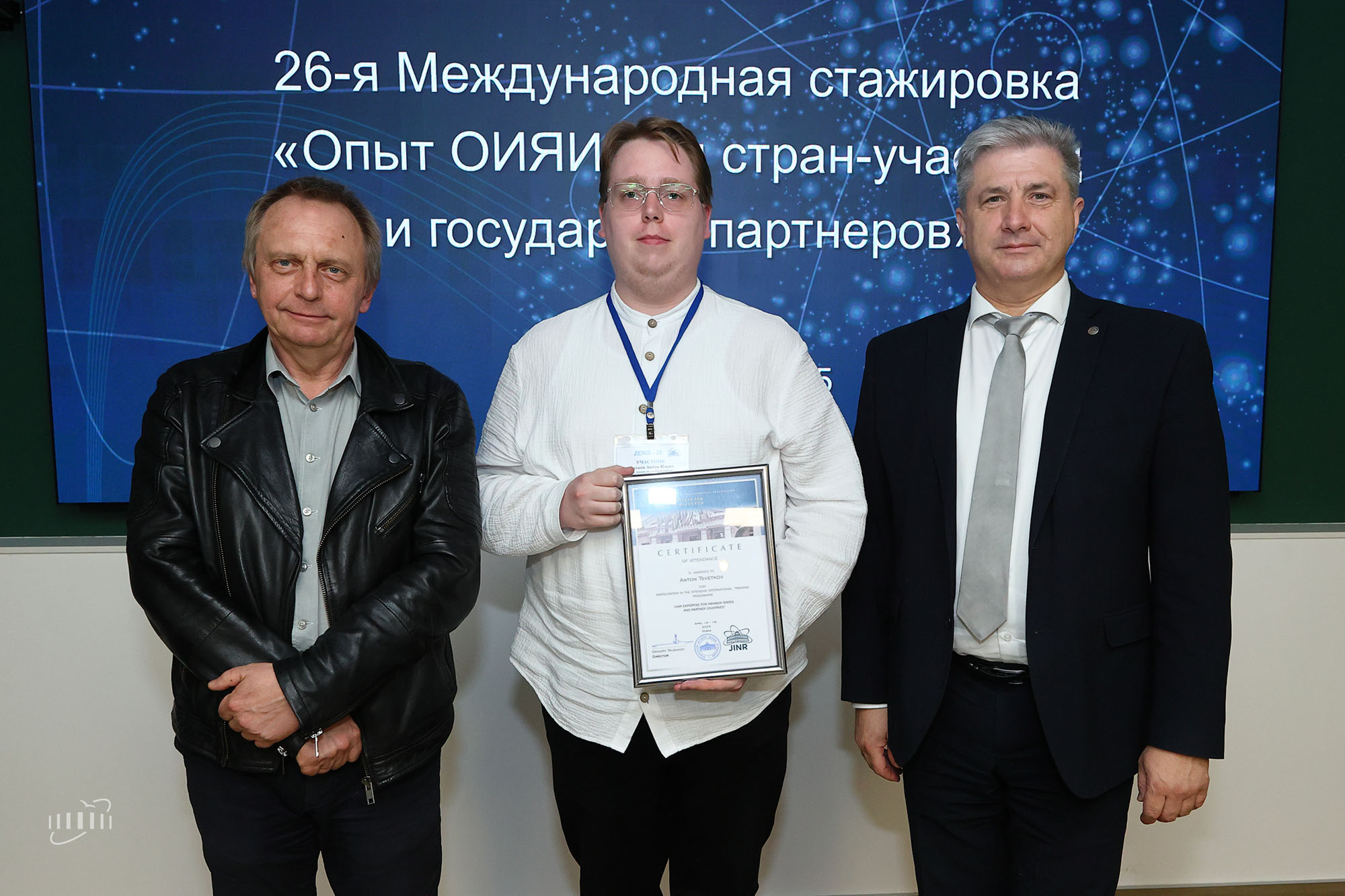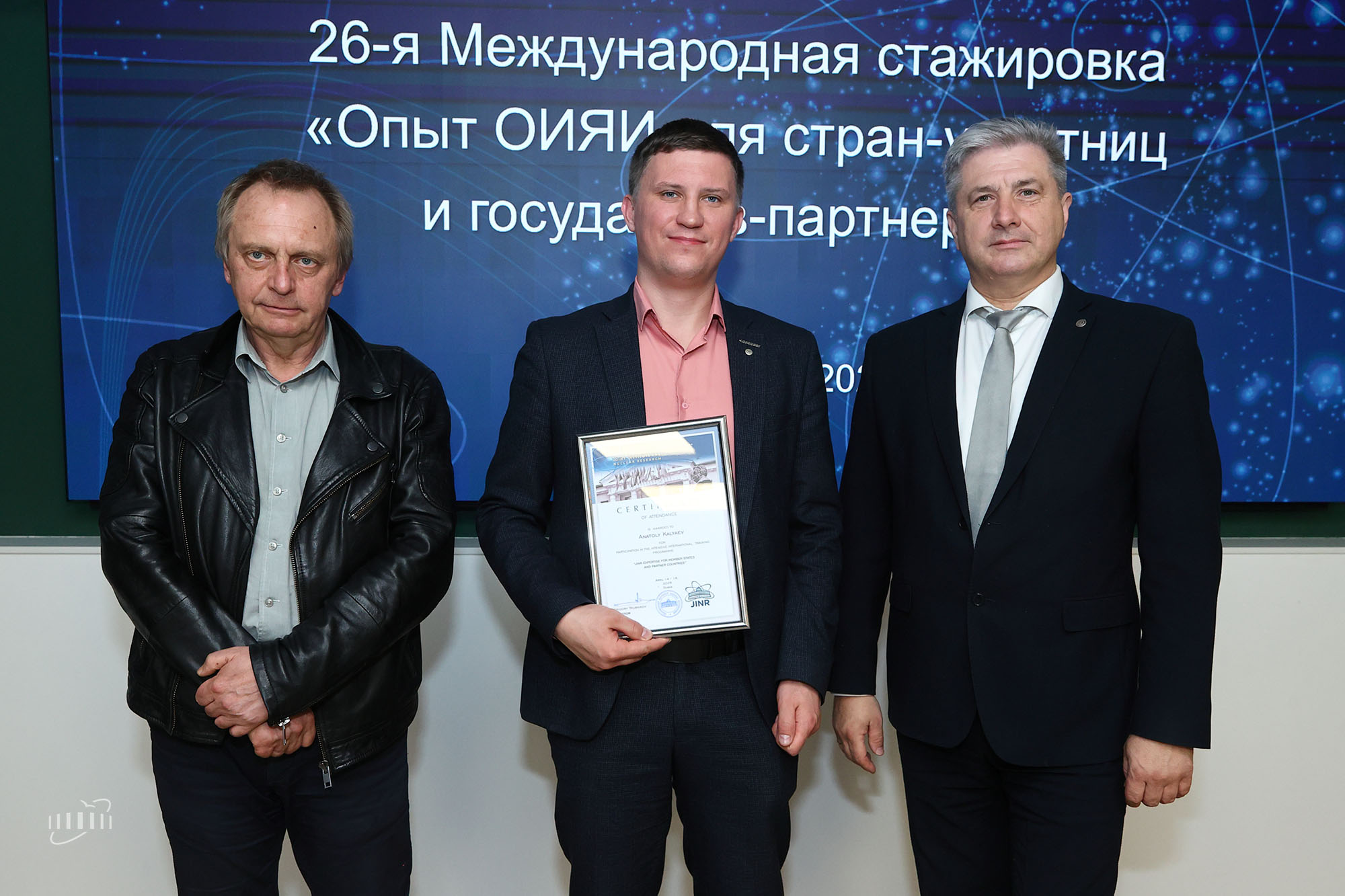JEMS-26: valuable experience for future scientific achievements
News, 23 April 2025
On 18 April 2025, the 26th “JINR Expertise for Member States and Partner Countries” (JEMS) training programme ended. At the final round table held at the International Conference Centre, representatives of scientific and educational centres of Russia, Belarus, and Kazakhstan shared their impressions of the Joint Institute for Nuclear Research and discussed new cooperation prospects with JINR’s laboratories and the opportunities of interaction provided by the Information Centres.
In his welcome speech, JINR University Centre Director Dmitry Kamanin stressed that the Joint Institute is ready to enter into close partnership with all interested higher education institutions. “JINR has unique methodological resources and ideal conditions for training highly qualified specialists both for research and scientific communication,” he noted.
The participants of the internship shared their impressions of the visit to the Joint Institute, highlighting the efficient organization of activities at the international scientific centre. They expressed their gratitude to the Institute’s employees for the thorough introduction to the laboratories’ experimental facilities and research programmes.
“During our stay in Dubna, my colleagues and clearly saw JINR’s great potential to create a motivating environment that fosters the skills of future physicists and engineers. Thanks to your professionalism and enthusiasm, together we will rise to today’s challenges of personnel and career guidance,” Acting Head of the Department of Nanotechnology at Southern Federal University (SFedU) Alexey Mikheikin shared his feedback.
“The internship at the Joint Institute for Nuclear Research was a truly valuable experience that will enhance our work in our home cities and inspire the younger generation of specialists to strive for new scientific achievements,” Deputy Director for International Scientific and Technical Collaboration at the Institute of Nuclear Problems of the Belarusian State University (INP BSU) Rano Gaiduk said. “It is necessary that as many employees from Belarus and other Member States as possible come here for motivation. JINR’s enthusiasm is inspiring”.
Deputy Dean, IT Direcotr of the SFedU Faculty of Physics Pavel Timoshenko announced the opening of a new JINR Information Centre in Rostov-on-Don at SFedU in summer 2025. “The future Information Centre at SFedU will become a coordinating centre combining the powerful scientific assets of the international organization in order to develop research and education in the country’s regions,” he stressed.
In addition, the participants spoke about the experience of successful cooperation between universities and JINR. In particular, research teams from Tver State University (TSU) and Moscow Power Engineering Institute (MPEI) actively collaborate with the Laboratory of Information Technologies, the Far Eastern and North-Eastern Federal Universities (FEFU and NEFU) participate in joint projects with the Laboratory of Neutron Physics, and employees of Samara National Research University and the INP BSU are part of the SPD Collaboration.
One of the topics discussed was the development of the JINR Information Centre network, designed to become an important link between universities and the Institute’s laboratories. As explained by JINR Chief Scientific Secretary Sergey Nedelko, they help to increase the interest of young people, including those who might enrol in the universities, in natural sciences, offer additional research and educational prospects for higher educational institutions, and provide opportunities to take part in major JINR international collaborations.
The participants of the internship expressed a shared opinion that it is important for the Information Centres to further develop their activities and exchange expertise. Universities are interested in increasing the number of onsite and online research and educational events organized by JINR, including scientific schools, seminars, lectures, and virtual tours of the Institute’s laboratories. All this will allow introducing a wide audience to JINR’s scientific and technical potential.
In addition, special attention was paid to the issues of effectively interacting with schoolchildren and students and work on modern methods of teaching natural sciences. Getting to know JINR provides students with opportunities not just in pedagogy, but also in the realm of large-scale scientific research,” Associate Professor at the Department of General and Theoretical Physics at Samara University Anton Karpishkov said. Director of the MPEI Centre for Artificial Intelligence Mikhail Sokolov suggested developing digital formats, such as virtual laboratories and educational video games, which will help younger generation understand science better. The importance of involving parents in the process of forming children’s interest in research was emphasised as well.
JINR Vice-Director Latchesar Kostov summarised the results of the round table. He expressed gratitude to the participants for their contribution to promoting collaboration with the Institute: “I am confident that thanks to the active cooperation of universities with JINR’s laboratories, we will be able to improve higher education and enrich the Institute’s scientific activities”.
